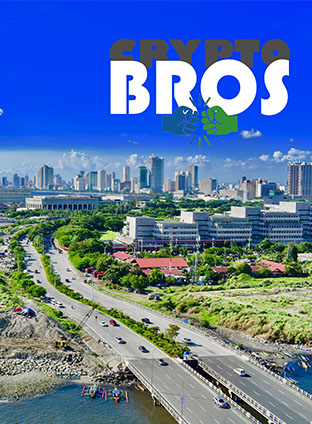What exactly is Forex?
Foreign [currency] and exchange are combined to form the term forex (FX). The practice of converting one currency into another is known as foreign exchange and is typically done for business, trade, or travel. The Bank for International Settlements, a worldwide bank for national central banks, reported in its 2022 triennial report that in 2022, the daily global volume of FX trading hit $7.5 trillion.
A trader buys one currency and sells another, and the exchange rate is continuously fluctuating based on supply and demand. At its most basic, forex trading is analogous to the currency exchange you may perform when traveling overseas.
The foreign exchange market, a worldwide marketplace operating 24 hours a day, Monday through Friday, is where currencies are transacted. All forex trading is done over the counter (OTC), which means that there isn’t a physical exchange (as there is for stocks) and that a network of international banks and other financial institutions, rather than a single exchange like the New York Stock Exchange, oversees the market.
Institutional traders, including those employed by banks, fund managers, and multinational organizations, make up the great majority of traders on the forex market. These traders may only be speculating on or hedging against potential exchange rate swings; they may not really be planning to take physical ownership of the currencies themselves.
How Does the Forex Market Work?
Currency exchange takes place in the foreign exchange market. The lack of a central marketplace is the feature that distinguishes this global market the most. Instead, over the counter (OTC) electronic currency trading takes place. This implies that rather from taking place on a single centralized exchange, all transactions take place over computer networks among dealers worldwide.
The market is open twenty-four hours a day, six days a week. The main financial hubs of Frankfurt, Hong Kong, London, New York, Paris, Singapore, Sydney, Tokyo, and Zurich—across practically every time zone—are where currencies are exchanged on a global scale. In other words, when the U.S. trading day closes, the forex market opens in Tokyo and Hong Kong. As a result, the currency market may be quite busy at any moment, with continuous changes in price quotations.

How Does the Forex Market Operate?
The only really uninterrupted and continuous trading market in the world is the foreign exchange market. In the past, institutional businesses and sizable banks that represented clients dominated the currency market. However, it has evolved in recent years to become increasingly geared toward retail investors and traders of all sizes.
Where is it located?
The absence of any physical structures serving as trading venues is an intriguing feature of the global FX markets. Instead, it consists of a network of linked trading terminals and computers. Institutions, investment banks, commercial banks, and private investors from different countries all participate in the market.
Who makes trades on it?
Prior to the internet, currency trading was highly challenging for individual investors. Due to the high capital requirements of forex trading, the majority of currency traders were huge multinational organizations, hedge funds, or high-net-worth individuals (HNWIs).
The majority of forex trading is still done on behalf of clients by commercial and investment banks. However, there are other chances for both professional and casual investors to trade currencies.
Types of Markets
Spot, forward, and futures markets are the main venues for trading forex. Because it serves as the “underlying” asset for the forwards and futures markets, the spot market is the biggest of the three. Typically, when individuals discuss the foreign exchange market, they are referring to the spot market.
When businesses or financial institutions need to insure against foreign exchange risks up to a certain future date, the forwards and futures markets tend to be more popular.
- Spot market – this is the main foreign exchange market where certain currency pairings are traded and exchange rates are set in real time according to supply and demand.
- Forward market – Forex traders also have the option of making a legally-binding (private) contract with another trader to lock in an exchange rate for a certain sum of money at a future date as an alternative to actually making a deal right away.
- Futures market – Similar to this, traders can choose to enter into a conventional contract to purchase or sell a certain amount of a currency at a predetermined exchange rate at a future date. Instead than being done privately, like in the futures market, this is done on an exchange.
The majority of forex traders who wish to speculate or protect themselves against potential fluctuations in currency prices utilize the forward and futures markets. The spot market, the biggest of the forex markets and the location of the majority of forex deals, serves as the basis for the exchange rates used in these markets.
Forex Terms to Know
Every market uses a different language. Before trading forex, you should be familiar with the following terms:
- Currency pair – A currency pair is used in every forex transaction. There are less popular transactions besides the majors (such as exotics, which are currencies of emerging nations).
- Pip – The smallest price movement within a currency pair is referred to as a pip, which is short for percentage in points. A pip equals 0.0001 in the forex market since prices are stated with at least four decimal places.
- Bid-ask spread – The greatest amount that buyers are prepared to pay for a currency (the bid) and the lowest amount that sellers need to sell for (the ask), much as with other assets (like stocks), establish exchange rates. The bid-ask spread is the difference between these two sums and the price at which deals will finally be performed.
- Lot – A lot, or standardized unit of currency, is the unit of exchange used in forex trading. Although tiny (1,000) and mini (10,000) lots as well as the standard lot size of 100,000 units of currency are also available for trading.
- Leverage – Some traders might not be willing to risk as much money to execute a deal as a result of such huge lot sizes. Leverage, another word for borrowing money, enables traders to engage in forex trading without needing the necessary sum of cash.
- Margin – Leveraged trading isn’t free, though. Traders are required to make a deposit up front, or what is known as margin.
Pros and Cons of Forex Trading
Pros
- most significant in terms of global daily trading volume
- traded five and a half days a week, 24 hours a day
- Beginning capital can increase quickly.
- generally adheres to the same regulations as standard trade
- Decentralized compared to conventional stock or bond markets
Cons
- Leverage can increase the volatility of forex transactions.
- Common leverage is in the range of 50:1.
- requires knowledge of economic statistics and fundamentals.
- less restrictions than in other markets
- No means of producing income
Pros Explanation:
- Globally, the forex markets have the highest daily trading volume and hence the greatest liquidity. In typical market situations, this makes it simple to initiate and exit a trade in any major currency in a split second for a tiny spread.
- The currency market is open for trading 24 hours a day, five and a half days a week, from Australia to New York. Trading chances to generate gains or offset losses are provided by the extensive time horizon and coverage. Frankfurt, Hong Kong, London, New York, Paris, Singapore, Sydney, Tokyo, and Zurich are the major currency market hubs.
- Because of the possible leverage in forex trading, a trader’s initial investment may grow very quickly.
- Since forex trading has far lower beginning capital requirements and typically adheres to the same laws as traditional trading, it is simpler to get started trading forex than stocks.
- More decentralized than conventional stock or bond markets, the currency market is. Since currency exchange activities are decentralized, there is less chance for manipulation by insider information about a firm or stock.
Cons Explanation:
- Trading with leverage can make forex deals far more volatile than trading without it.
- The forex markets’ banks, brokers, and dealers provide a significant degree of leverage, allowing traders to manage sizable holdings with comparatively little capital.
- In the forex market, leverage in the region of 50:1 is typical, while some brokers provide much higher leverage. But because many new traders have incurred big losses by employing more leverage than was required or wise, leverage must be utilized with caution.
- Being able to trade currencies profitably demands a grasp of economic indicators and fundamentals. To comprehend the fundamentals that influence currency prices, a currency trader has to have a broad understanding of the economies of the various nations and how they are interrelated.
- The forex market is less regulated than other financial markets since it is decentralized. Depending on the trading jurisdiction, the level and kind of regulation in the forex markets varies.
- Forex markets could be appealing to investors who aren’t interested in exponential returns because they lack instruments that give consistent income, such monthly dividend payments.

Do Forex Markets Have Volatility?
One of the world’s most liquid marketplaces is the Forex market. They may thus be less erratic than other markets, like the real estate market. A currency’s volatility depends on a number of variables, including the nation’s politics and economy. Consequently, severe volatility can be caused by occurrences like economic instability in the form of a payment default or an imbalance in trade connections with another currency.
Do Forex Markets Have Regulations?
Regulation of foreign exchange varies by jurisdiction. Nations with advanced infrastructure and FX trading markets include the United States. The National Futures Association (NFA) and the Commodity Futures Trading Commission (CFTC) impose strict regulations on forex transactions in the United States. However, emerging nations like India and China have limitations on the companies and capital that may be used in forex trading because of the widespread use of leverage in forex trades. The biggest forex trading market is in Europe. The UK’s Financial Conduct Authority (FCA) oversees and controls foreign exchange transactions.
What Currencies Are Available for Trading?
High liquidity currencies have a ready market and demonstrate smooth and consistent price movement in reaction to outside events. The currency that is exchanged the most globally is the US dollar. Six of the market’s top seven most liquid currency pairings contain it. However, it is impossible to trade in high lot sizes for currencies with little liquidity without the price experiencing a substantial amount of market fluctuation.
The Forex market is simpler for traders—especially those with minimal capital—to day trade or swing trade in modest quantities than other markets. Long-term fundamentals-based trading or a carry trade can be successful for people with wider time horizons and more financial resources. Technical analysis skills and a concentration on comprehending the macroeconomic principles that underpin currency prices may assist rookie forex traders increase their profits.



































